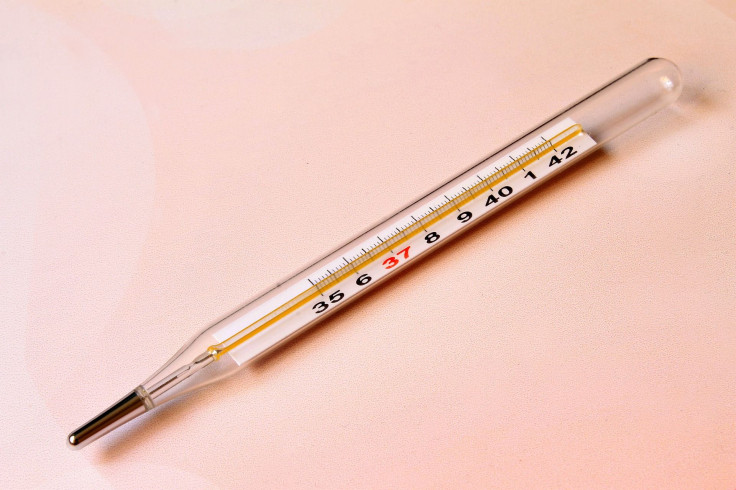Chronic Stress Can Make You Feverish; Another Reason To Improve Mental Health Awareness

If you’ve ever experienced stress or anxiety, you’re likely familiar with the physical strain of mental illness: shortness of breath, fatigue, tight chest, nausea, and muscle pain, in addition to a myriad of other complications and symptoms. Over time, stress can even contribute to chronic diseases like obesity, diabetes, and heart disease — as well as a relatively unknown condition, psychogenic fever.
Psychogenic fever is triggered by emotional events or high levels of stress over time, and it consists of a high body temperature without an infection. Because psychogenic fever isn’t often discussed in medical literature — and very rarely diagnosed as a stress-related condition — Dr. Takakazu Oka of the Kyushu University Graduate School of Medical Sciences decided to complete the first epidemiological study on it, published in the journal Temperature.
“While this condition is known in the literature, only a few doctors in the world study it and treat patients with psychogenic fevers,” Professor Andrej Romanovsky, editor-in-chief of Temperature, said in the press release. “This is why we have invited Dr. Oka to share his unique experience.”
Physicians don’t fully understand the impact of mental illness on the body, and as a result many patients suffering from anxiety or stress are dismissed at the doctor’s office without being properly treated. This is why Oka wanted to further examine the mechanisms behind psychogenic fever, and how to treat it. It’s not certain how many people are affected by psychogenic fever, but Oka posits that it’s actually quite common, based on his case reports and clinical practice. He’s seen it particularly among Japanese students, who are under pressure to achieve academic success.
Recent animal studies showed that psychological stress triggers fever mechanisms that are similar to but not related to infectious fever. Oko points out that it’s important for doctors to be aware that fever can indeed be caused by stress — and that plenty of other illnesses and conditions can be triggered, or exacerbated, by stress as well.
“[E]ven their doctors did not believe the fever is caused by or related with psychological stress,” Oka said in the press release. “Recent animal studies enable the doctors to be aware of this pathophysiology.”
Treating psychogenic fever — or “functional hyperthermia,” as Oka names it — doesn’t rely on stopping the fever. Rather, treatment is most effective when it targets the root of the problem: the stress itself. Thus, it could involve cognitive behavioral therapy, anxiety meds, or other stress reduction techniques.
“Some patients develop extremely high core body temperature (Tc) (up to 41 degrees C) when they are exposed to emotional events, whereas others show persistent low-grade high Tc (37–38 degrees C) during situations of chronic stress,” Oka writes in the abstract. “The mechanism for psychogenic fever is not yet fully understood. However, clinical case reports demonstrate that psychogenic fever is not attenuated by antipyretic drugs, but by psychotropic drugs that display anxiolytic and sedative properties, or by resolving patients' difficulties via natural means or psychotherapy. ”
At the end of the day, it’s yet another reason why embracing mental health awareness is essential for our well-being. This is why Oka decides to call it “functional hyperthermia,” hoping to remove its negative stigma and prove that stress is a legitimate thing to be treated medically.
“I prefer to call it functional because in the clinical setting the naming of diseases including the term “functional,” such as functional dyspepsia, functional gastrointestinal disorders, or functional somatic syndrome, connotes both stress-related pathology and impaired functioning of the autonomic nervous system,” Oka wrote.
Source: Oka T. Psychogenic fever: how psychological stress affects body temperature in the clinical population. Temperature. 2015.



























